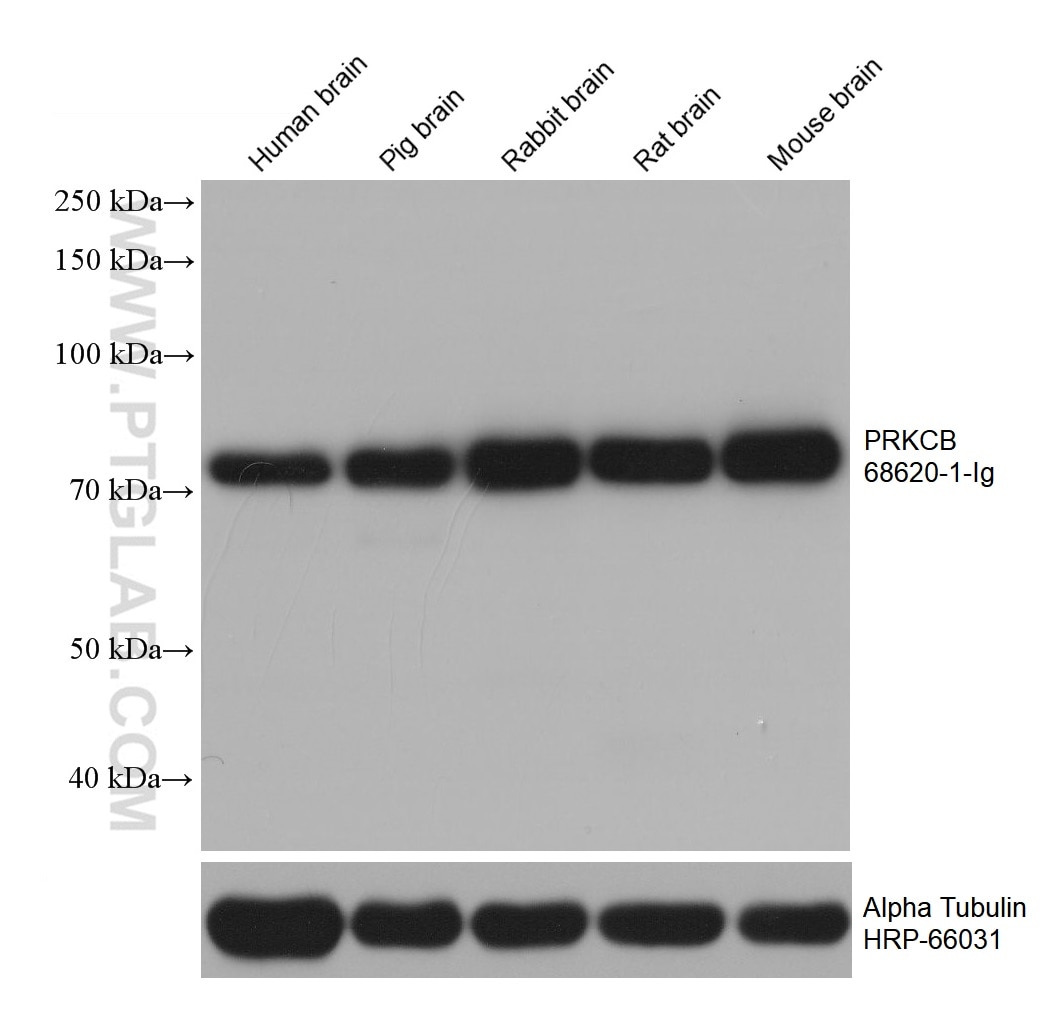Anticorps Monoclonal anti-PRKCB
PRKCB Monoclonal Antibody for WB, Indirect ELISA
Hôte / Isotype
Mouse / IgG1
Réactivité testée
Humain, Lapin, porc, rat, souris
Applications
WB, Indirect ELISA
Conjugaison
Non conjugué
CloneNo.
4B7A1
N° de cat : 68620-1-PBS
Synonymes
Galerie de données de validation
Informations sur le produit
68620-1-PBS cible PRKCB dans les applications de WB, Indirect ELISA et montre une réactivité avec des échantillons Humain, Lapin, porc, rat, souris
| Réactivité | Humain, Lapin, porc, rat, souris |
| Hôte / Isotype | Mouse / IgG1 |
| Clonalité | Monoclonal |
| Type | Anticorps |
| Immunogène | PRKCB Protéine recombinante Ag33693 |
| Nom complet | protein kinase C, beta |
| Masse moléculaire calculée | 673 aa, 77 kDa |
| Poids moléculaire observé | 77 kDa |
| Numéro d’acquisition GenBank | BC036472 |
| Symbole du gène | PRKCB |
| Identification du gène (NCBI) | 5579 |
| Conjugaison | Non conjugué |
| Forme | Liquide |
| Méthode de purification | Purification par protéine G |
| Tampon de stockage | PBS only |
| Conditions de stockage | Store at -80°C. 20ul contiennent 0,1% de BSA. |
Informations générales
Protein kinase C (PKC) is a family of serine- and threonine-specific protein kinases that can be activated by calcium and second messenger diacylglycerol. Protein kinase Cs (PKCs) are signaling molecules that play key roles in many cellular processes, including secretion, gene expression, proliferation, and muscle contraction. The PKC family is broadly divided into three subgroups: classical, novel, and atypical PKCs. These subgroups differ in both protein sequences and mechanistic requirements for catalytic activity. PKC beta is one of the PKC family members. PKC beta has been reported to be involved in many different cellular functions, such as B cell activation, apoptosis induction, endothelial cell proliferation, and intestinal sugar absorption. Studies in mice also suggest that this kinase may also regulate neuronal functions and correlate fear-induced conflict behavior after stress.



